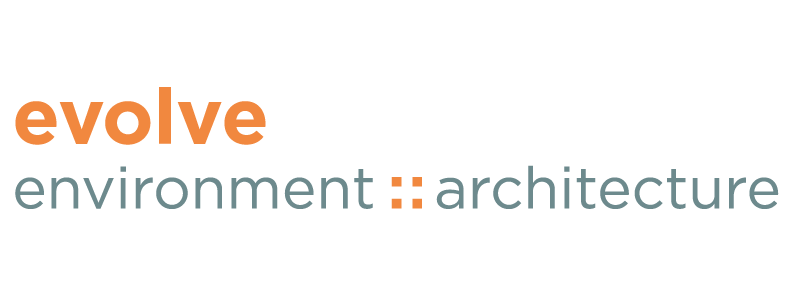District PGH: Resources for Sustainable Communities
With the creation of the American Rescue Plan Act (ARPA), District PGH is positioned to assist communities in the greater Pittsburgh region to decide how to use Coronavirus Local Fiscal Recovery Funds (CLFRF) for sustainable investments that build resilience.
The American Rescue Plan Act provides local governments with funding to address public health, advance economic stabilization and other local recovery needs incurred due to COVID-19. Since the program’s approval, over 2,445 of Pennsylvania’s 2,500+ municipalities have received $489.7 million in local recovery funding. ARPA funds are a one-time infusion being disbursed in two tranches; the first was released almost immediately after ARPA was signed into law on March 11, 2021. The final funding tranche is expected to be delivered during the summer of 2022. Local governments have until the end of 2024 to decide how to use their ARPA funds and until 2026 to actually spend them.
“The American Rescue Plan funds provide an opportunity to take stock in what your community has experienced over the last 18 months, determine how to help those who are still suffering, and prepare for future challenges,” said Jim Price, Senior Program Manager, Sustainable Pittsburgh.
While a number of recommendations and resources have been provided by Pennsylvania’s local government associations like the Pennsylvania Municipal League, Pennsylvania State Association of Township Supervisors, the Pennsylvania State Association of Boroughs, and the Local Government Academy, there still remain uncertainties on the regional best use of funds.
As a collaborative of nonprofit intermediaries committed to accelerating sustainable community initiatives in Southwestern PA, District PGH has announced the release of a Sustainable Communities Resource Guide. The guide includes example strategies offered by District PGH members that can help communities to utilize ARPA funds to:
- Better understand the needs of vulnerable community members
- Create plans to make communities healthier, more sustainable, and resilient
- Collect data and communicate information
- Improve the health and sustainability of new or existing buildings
An important component of CLFRF guidance is focused on transparency, public engagement, and ensuring fund delegation is an equitable and inclusive process.
A community that works together for a healthier, more equitable, and prosperous future will be better prepared for dealing with future issues that impact public health and wellness. Effective community resilience and long-term sustainability depends on meaningful, authentic, and equitable resident, business, and stakeholder participation and buy-in.
The recommendations outlined in the Recovery Plan Template include: Public Health, Negative Economic Impacts, Services to Disproportionately Impacted Communities, Premium Pay, Infrastructure, Revenue Replacement, and Administrative or other needs.
To read Sustainable Pittsburgh’s “The American Rescue Plan Act of 2021: Guidance for Local Governments, click here.
District PGH Sustainable Communities Resource Guide
District PGH is a collaborative of local organizations working to accelerate neighborhood and district-scale sustainable development that promotes climate resilience and equity in the greater Pittsburgh region, and are available to assist community deliberation on how to use the funds for sustainable investments that build resilience.
Core members include evolveEA, The Forbes Funds, Green Building Alliance, New Sun Rising, and Sustainable Pittsburgh. To learn more, click here.
About
evolve environment :: architecture (evolveEA) is a multidisciplinary practice situated at the intersection of sustainability and the built environment. The firm’s nationally recognized ecodistrict planning work exemplifies its approach to helping communities and organizations pursue triple-bottom-line goals through strategic action.
The Forbes Funds advances the well-being of Southwestern Pennsylvania by helping human services and community-based nonprofits build their management capacity and increase the impact of their mission work. TFF works locally and globally to make the nonprofit sector more equitable, accessible, and sustainable, and envisions a SWPA nonprofit sector that is innovative, informed, engaged, and effective.Together with our partners, The Forbes Funds is leading transformational changes across the SWPA nonprofit ecosystem by increasing effectiveness of individuals, groups, human service and community-based organizations in an inclusive, collaborative, and thoughtful manner.
Green Building Alliance environment by empowering people to create environmentally, economically, and socially vibrant places. GBA envisions a world where every building and community is sustainable so that every person can thrive. GBA leverages a broad network of partners to drive sustainable practices at every scale of the built environment through expertise in performance standards, cross-sector collaboration, innovative learning, and data analysis to create the transformative solutions essential in advancing the region forward.
New Sun Rising supports nonprofits, social enterprises, and collaborations to build vibrant communities through culture, sustainability, and opportunity. NSR believes that people and communities hold the knowledge and power to make positive change. We envision a future where regenerative community development practices create the conditions for true social, environmental, and economic justice.
Sustainable Pittsburgh empowers decision-making that builds a fundamentally equitable, resilient, healthy, and prosperous region. It is our vision to see a thriving region where stakeholders are connected, sustainability knowledge is shared and applied, and all people can succeed. Our focus is to provide expertise, create strong communities of practice, help shape a positive narrative, and advance sustainability policy.


